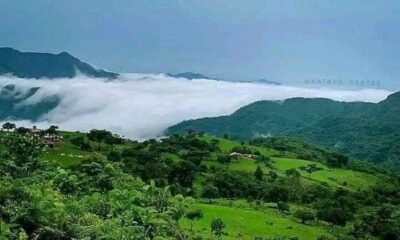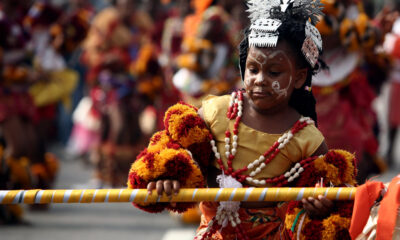TRAVEL
5 Most Beautiful Places To Visit In Jos Plateau
Published
1 year agoon

Jos, the capital of Plateau State, is located in the middle belt region of Nigeria. It is one of the most charming cities in the country, with a serene environment and comely weather. This makes it a sought-after tourist destination in Nigeria.
The city is also known for its rich cultural diversity and artistic heritage. The Nok culture, which flourished in the Jos area between 1000 BC and 200 AD, is one of the most important archaeological cultures in Africa. The Nok people were skilled artists who created beautiful sculptures and terracotta figurines.
Jos is home to several tourist attractions, including:
- The Shere Hills
- The Rayfield Holiday Resort
- The Assop Falls
- The Jos Wildlife Park
- The Pandam Game Reserve
Now that the beautiful places in Jos have been revealed, take your time to dive deeper into some of their attributes that would appeal more to you.
1. Shere Hills:

Shere Hills is a popular tourist destination in Jos, Nigeria. It is located about 10 kilometres to the east of Jos and is known for its stunning views of the city and surrounding countryside. The hills are also a popular spot for hiking, camping, and rock climbing.
Shere Hills is one of the highest peaks in Nigeria, with an elevation of 1,829 meters (6,001 feet) above sea level. The hills are made up of volcanic rock and are home to a variety of plants and animals.
If you are looking for a beautiful and challenging hike, Shere Hills is a great option. The hills offer stunning views of the city and surrounding countryside, and the hiking trails are well-maintained.
The Shere Hill has been one of Nigeria’s tourist assets.
2. Assop Waterfall:
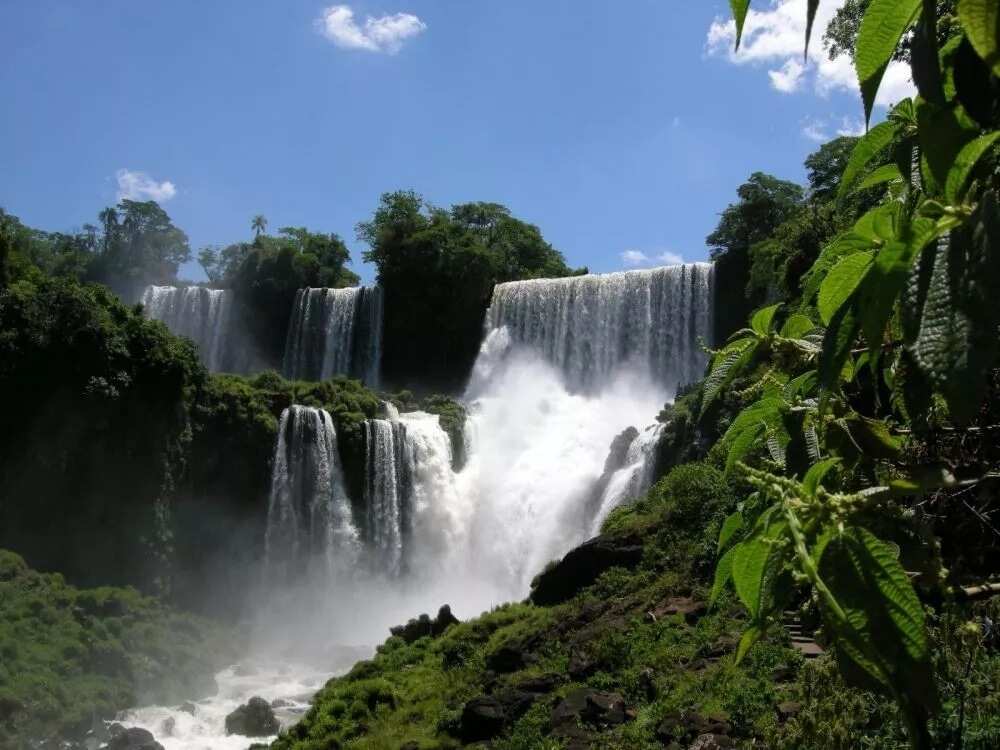
Assop Waterfall is a beautiful waterfall located about 60 kilometres from Jos, Nigeria. It is a popular tourist destination and has been featured in several movies and television shows.
The waterfall is located in a lush green valley and is surrounded by trees and vegetation, a forest gallery passage and a brick staircase leading to this fascinating sight. The water cascades down a series of rocks and plunges into the valley with so much strength and speed forming a whitish torrent which projects a rare view of nature.
Assop Waterfall is also a popular spot for photography. The beauty of the waterfall and the surrounding scenery make it a great place to take pictures.
3. Rayfield Holiday Resort:
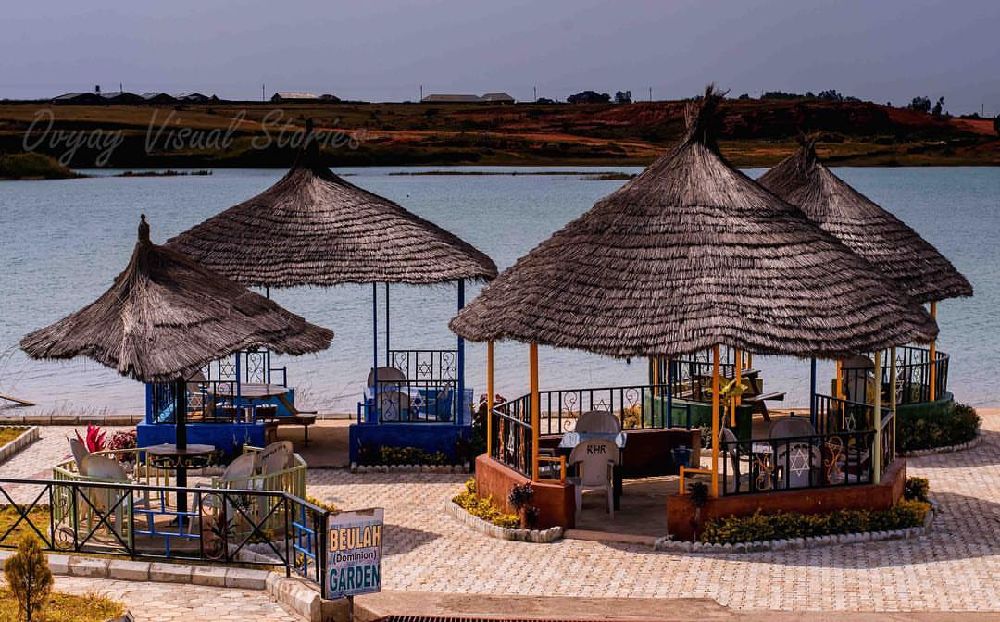
Rayfield Holiday Resort is known for its beautiful scenery, variety of activities, and excellent amenities.
The resort is located about 4 kilometres from the Jos metropolis and is surrounded by hills and forests. The resort has a variety of activities to offer visitors, including:
- Golf: The resort has a golf course that is considered to be one of the best in Nigeria.
- Fishing: The resort has a lake where visitors can fish for their own food.
- Boating: The resort has a fleet of boats that visitors can use to explore the lake.
- Indoor games: The resort has a games room with a variety of games, such as table tennis, billiards, and darts.
- Swimming: The resort has a swimming pool that is open year-round.
- Children’s play area: The resort has a children’s play area with a variety of activities for kids.
The resort also has a variety of dining options, including a restaurant that serves local and international cuisine.
Rayfield Holiday Resort is a great place to relax and enjoy the outdoors. It is a popular destination for families, couples, and groups of friends.
4. Jos Wildlife Park:

Jos Wildlife Park is one of the largest man-made wildlife parks in the country and is home to a variety of animals, including elephants, lions, monkeys, snakes, and crocodiles. It is situated in a pine forest and is surrounded by hills.
The park has a number of features that make it a popular tourist destination, including:
- A variety of animals: The park is home to over 500 animals, including lions, elephants, monkeys, snakes, and crocodiles.
- A natural forest: The park is situated in a pine forest, which provides a natural habitat for the animals.
- Picnic areas: The park has a number of picnic areas where visitors can relax and enjoy the outdoors.
- History museum: The park has a history museum that tells the story of the park and its animals.
Jos Wildlife Park is a great place to learn about animals and nature.
5. Pandam Game Reserve:
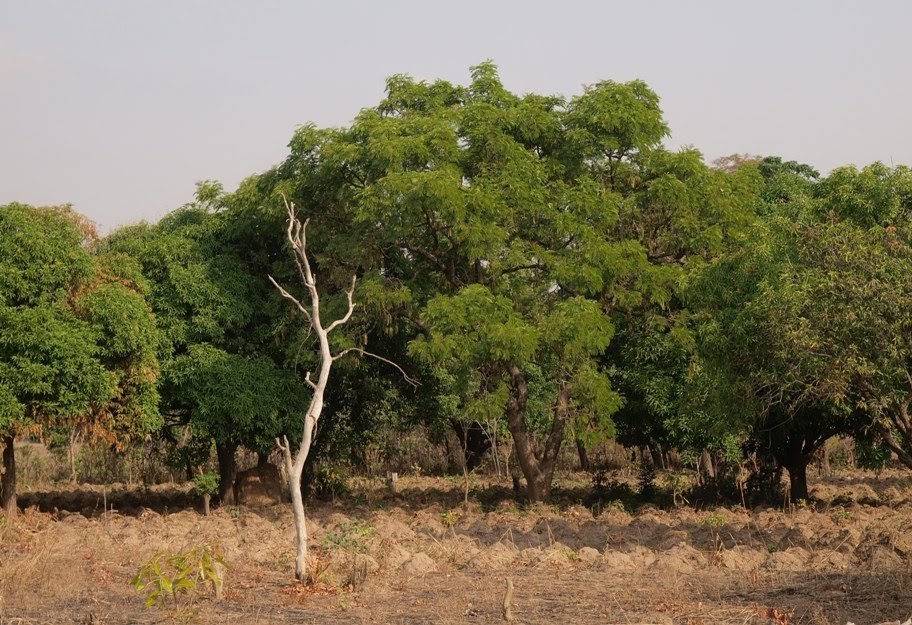
Pandam Game Reserve is a natural habitat that hosts a number of animals which has attracted researchers and tourists. It presents an atmosphere for tourists to have a feel of a natural environment. This game reserve has a lake that animals such as the hippo use to cool off during sunny hours.
It is an amazing sight for tourists who would like to see some rare species of animals such as the African manatee. Fun activities such as fishing, bird watching and canoeing can be carried in the park with self-guided trails.
There are some things to keep in mind when visiting any of these places in Jos:
- There could be opening and closing hours in these places, so plan on your visiting hours in order to enjoy your time.
- An entrance fee could be required, so carry enough cash.
- These places could be crowded, especially on weekends as many people might want to have leisure all at almost the same time.
- Be sure to wear comfortable shoes and clothing that suit where you are going.
- You could bring along edibles just in case you have the need.
- Be aware of the weather conditions before you go.
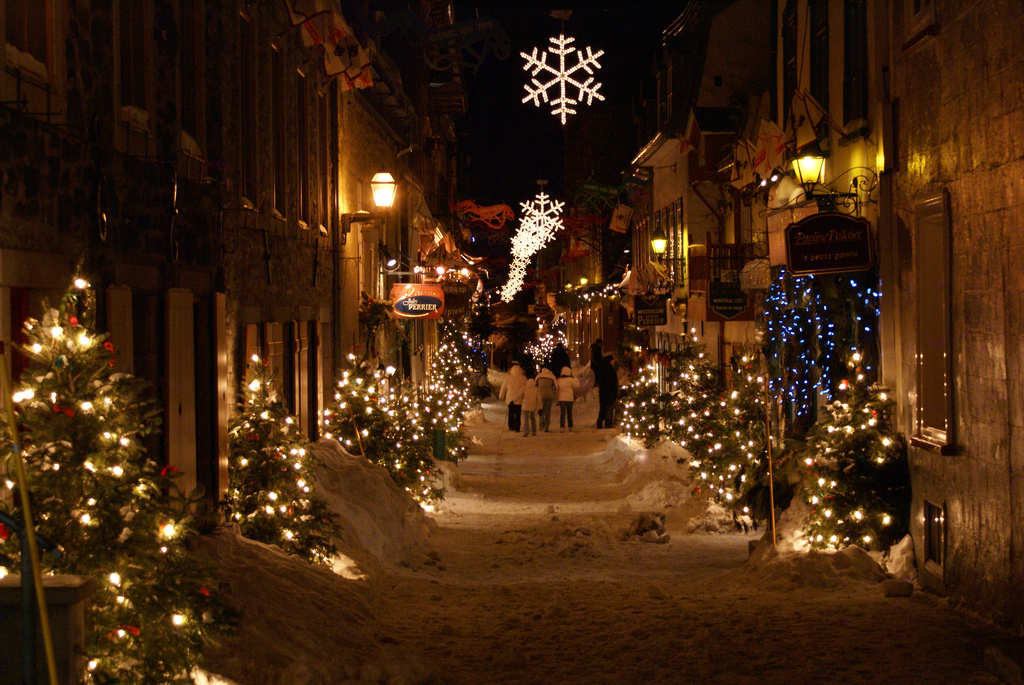
Christmas decorations transform cities worldwide into mesmerising wonderlands of light and art. These festive displays, filled with dazzling lights, intricate designs, and captivating installations, ignite excitement and joy in locals and visitors.
The brilliance of these decorations immerses people in the Christmas spirit, showcasing the magic of the holiday season. Streets illuminated with vibrant Christmas decorations foster a sense of togetherness, drawing communities closer and celebrating cherished traditions.
Beyond their beauty, these displays bring life and warmth to cities, making the festive season unforgettable.
Here is a look at some of the cities known for their unforgettable Christmas decorations, showcasing the best in festive light displays, artistic installations, and holiday spirit.
1. Rockefeller Centre, New York City, New York
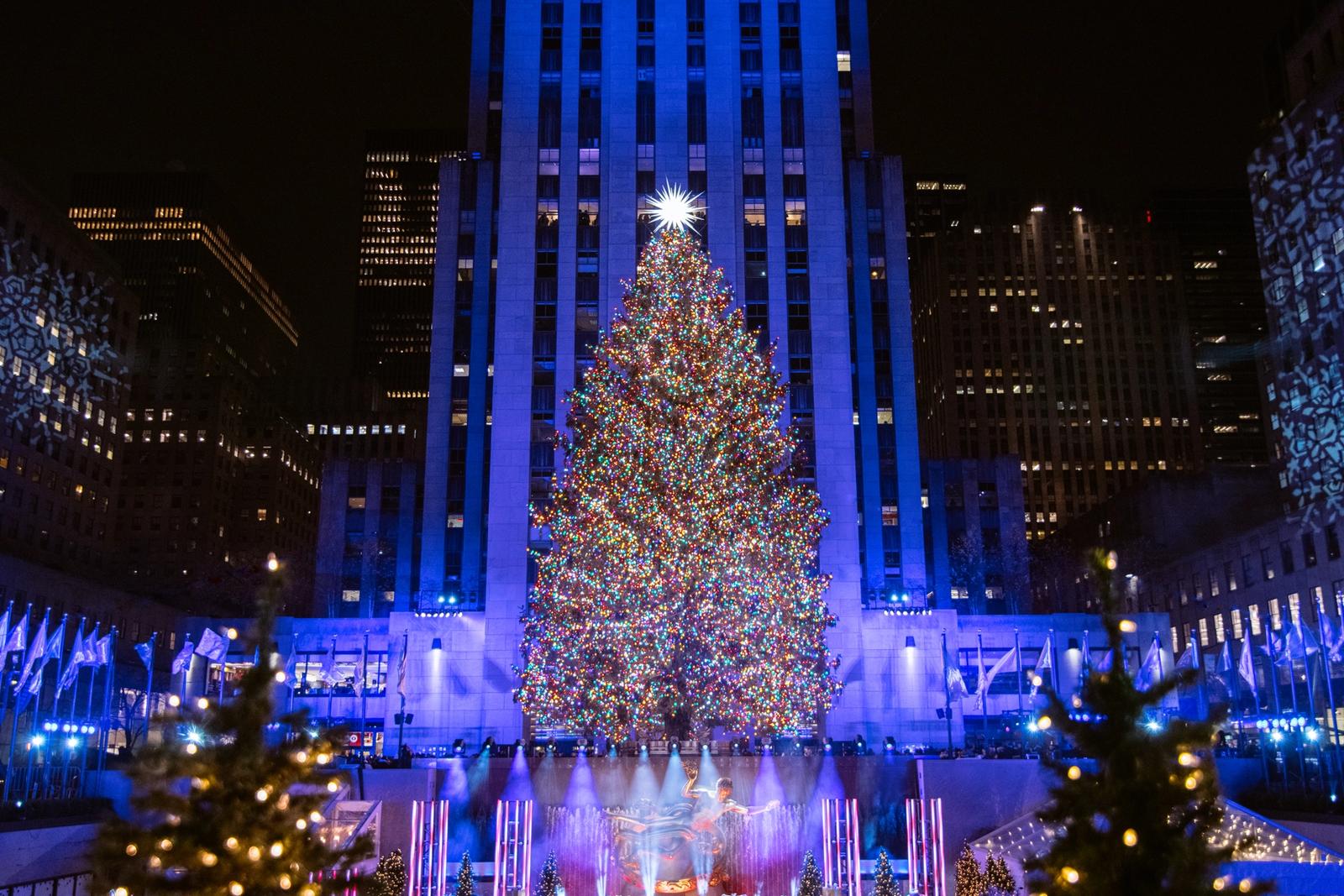
The Rockefeller Centre in New York City is world-famous for its grand Christmas tree and its holiday decorations.
Since 1933, the towering Norway spruce tree, adorned with over 45,000 lights, has been a staple of the city’s Christmas celebrations.
Every year, thousands of people flock to the centre to witness this breathtaking display. More than half a million visitors pass by the tree daily, many of them stopping to ice skate on the rink beneath it.
The Rockefeller Centre’s Christmas decorations are iconic, making it one of the must-see locations for anyone looking to experience the magic of Christmas decorations in cities.
2. Luci d’Artista, Salerno, Italy
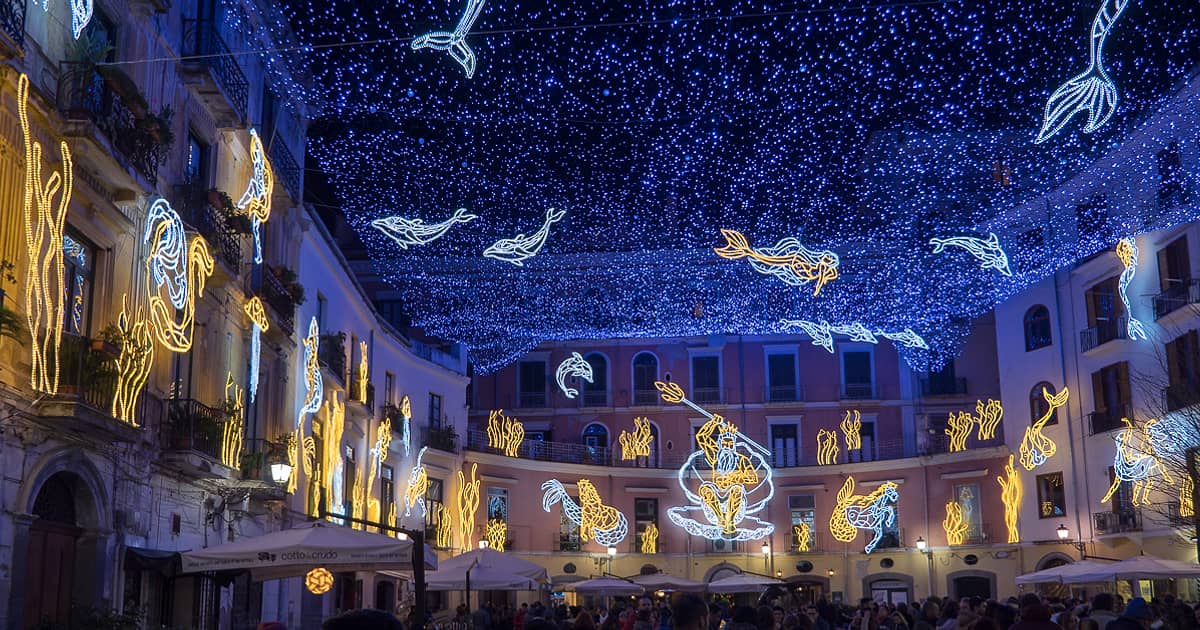
In Salerno, Italy, the annual “Luci d’Artista” festival lights up the city with incredible art installations and light displays.
Running from November 29 to the end of January 2025, this event transforms the city’s squares and gardens into a winter wonderland.
The festival features unique light installations, including an LED replica of the night sky, an illuminated zoo, and enchanting lemon tree-shaped lights that pay tribute to the region’s famous citrus groves.
The beauty of Salerno’s Christmas lights and displays is sure to captivate anyone who has the pleasure of visiting this Italian city during the holiday season.
Salerno’s contribution to Christmas decorations in cities makes it an unforgettable experience for travellers.
3. Symphony of Lights, Hong Kong

Hong Kong’s Christmas celebrations are known for their impressive holiday markets, window displays, and vibrant concerts. However, the highlight of the city’s festive decorations is the “Symphony of Lights” show.
This multimedia light display involves more than 40 skyscrapers along Victoria Harbour, with a neon extravaganza lighting up the skyline in a way that is both awe-inspiring and beautiful.
The show is synchronised with music, creating a dazzling visual and auditory experience that captures the essence of the Christmas season.
Hong Kong’s Symphony of Lights is a shining example of the spectacular Christmas decorations found across the world.
4. Amsterdam Light Festival, The Netherlands

Amsterdam’s Amsterdam Light Festival is another must-see for anyone interested in the beauty of Christmas decorations.
Beginning on November 28 each year, this event features stunning light installations by international artists displayed along the city’s famous canals.
2024 marks the 750th anniversary of light installations in Amsterdam, making this year’s festival even more special.
Visitors can stroll along the canals, taking in the mesmerising sights of glowing sculptures, illuminated bridges, and other creative light displays.
The Amsterdam Light Festival’s unique integration of art and light showcases how cities can beautifully incorporate festive Christmas decorations into their architectural landscapes.
5. Oxford Street, London, England

London’s West End is synonymous with grandiose holiday decorations, and Oxford Street is at the heart of this festive spectacle.
The annual Christmas lights display on Oxford Street is a magical sight to behold, with thousands of shimmering lights illuminating the street from end to end.
The area is home to world-renowned shopping destinations and theatres, adding to the charm of the Christmas season.
Visitors can enjoy holiday shopping while taking in the stunning lights, and the surrounding festive decorations make the West End an unforgettable place to be during the Christmas season.
The city’s dazzling displays on Oxford Street are one of the most iconic examples of cities Christmas decorations.
The Uniqueness of Christmas Decorations in Each of These Cities
Each of these cities brings its own unique touch to Christmas celebrations through festive lights and decorations. New York’s Rockefeller Centre offers timeless elegance with its massive tree and rink. Meanwhile, Salerno provides a more artistic experience with its light sculptures and installations.
Hong Kong dazzles with modern technology through its multimedia light show, while Amsterdam’s Light Festival offers a blend of history and contemporary art along its picturesque canals.
London’s Oxford Street, on the other hand, brings a touch of glamour and shopping bliss to its Christmas celebrations. These cities’ Christmas decorations highlight the diversity and creativity with which cities around the world celebrate the holiday season.
Why Christmas Decorations Matter
Christmas decorations are not just for aesthetics; they hold cultural significance. They bring people together and help create a sense of community and belonging.
In many places, these lights and installations have become integral to the holiday season. This makes them a major attraction for both locals and tourists. They represent joy, hope, and the spirit of giving, which are central to Christmas celebrations.
As cities continue to innovate with their Christmas decorations, they provide an opportunity for communities to showcase their unique traditions and foster a sense of unity.
Visiting these destinations during the holiday season provides a chance to experience the magic of Christmas in a whole new light.
If you found this article helpful, you can read more here.
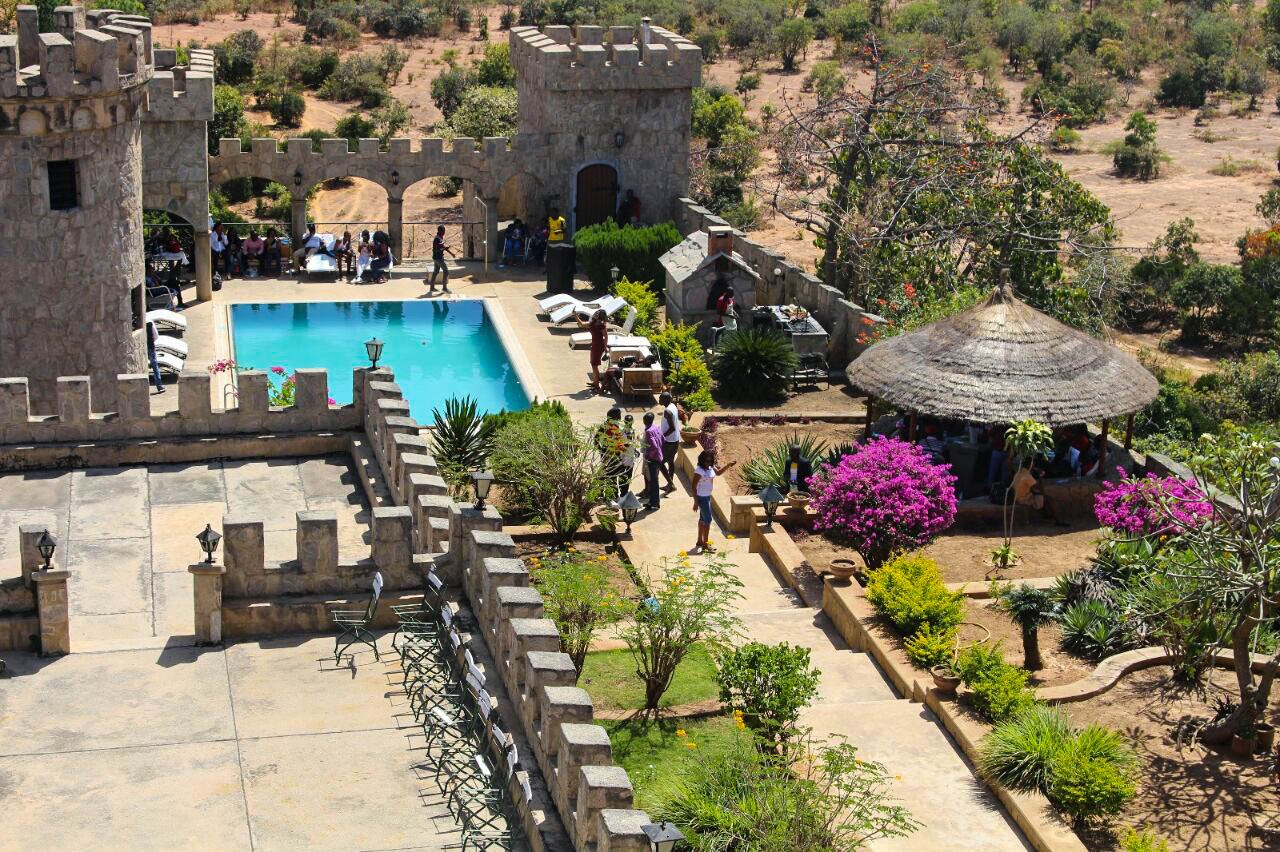
If you’re wondering about the best fun places to visit in Kaduna, this comprehensive guide will unveil four must-see destinations that promise unforgettable adventures.
Kaduna is a vibrant city in northern Nigeria. The city offers travellers an incredible mix of historical, cultural, and recreational experiences.
Let’s see the 4 fun places in Kaduna that you must visit!
1. Kaduna National Museum
When exploring fun places to visit in Kaduna, the Kaduna National Museum stands out as a top attraction. Located in the heart of the city, this museum showcases Nigeria’s rich cultural heritage.

Visitors can explore extensive collections of archaeological artefacts, traditional crafts, and historical exhibits.
The museum provides fascinating insights into the region’s historical developments. Its diverse exhibits tell stories of ancient civilisations, colonial periods, and Nigerian cultural diversity.
Photography enthusiasts will find incredible opportunities to capture remarkable displays of historical artefacts. Tourists interested in understanding northern Nigerian history will find the museum an essential stop.
The museum’s well-curated galleries offer immersive experiences that transport visitors through time.
2. Kajuru Castle
Adventure seekers must not miss Kajuru Castle. This extraordinary destination resembles a European mediaeval castle, offering a surreal experience in northern Nigeria.
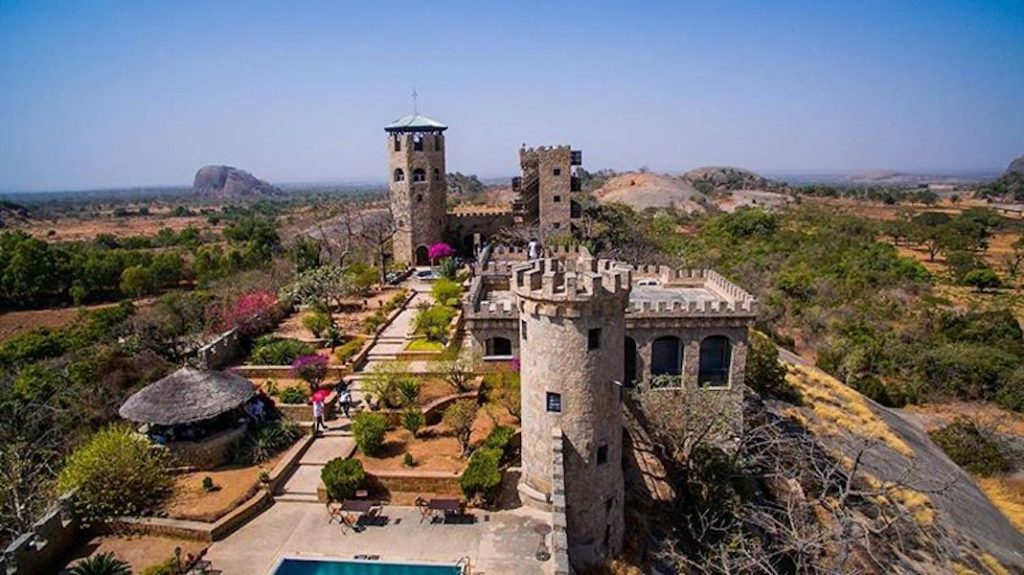
The castle sits dramatically on a rocky landscape, providing breathtaking panoramic views of the surrounding terrain.
Built by a German expatriate, the castle features unique architectural elements that fascinate visitors. Tourists can explore its intricate rooms, walk through stone corridors, and enjoy stunning photography opportunities.
The castle’s distinctive design makes it one of the most Instagram-worthy fun places in Kaduna.
Visitors can enjoy guided tours, learn about the castle’s fascinating history, and capture memorable moments.
The surrounding landscape offers additional opportunities for hiking, picnicking, and enjoying nature’s beauty.
3. Gbagyi Cultural Festival Ground
Cultural enthusiasts seeking fun places to visit in Kaduna will appreciate the Gbagyi Cultural Festival Ground. This location offers an authentic glimpse into local traditions, customs, and indigenous practices.

Visitors can experience vibrant performances, traditional music, and intricate cultural displays.
The festival ground hosts numerous events throughout the year, showcasing the rich heritage of the Gbagyi people.
Tourists can interact with local artisans, watch traditional dance performances, and purchase unique handicrafts. These experiences provide deeper insights into northern Nigerian cultural traditions.
Photography lovers and cultural researchers will find this destination among the most enlightening and fun places to visit in Kaduna.
The ground offers unique opportunities to document and understand local community practices.
4. Kofar Gamji Park
Kofar Gamji Park, also known as Hassan Usman Katsina Park, is a historic amusement park located in the heart of Kaduna, Nigeria.
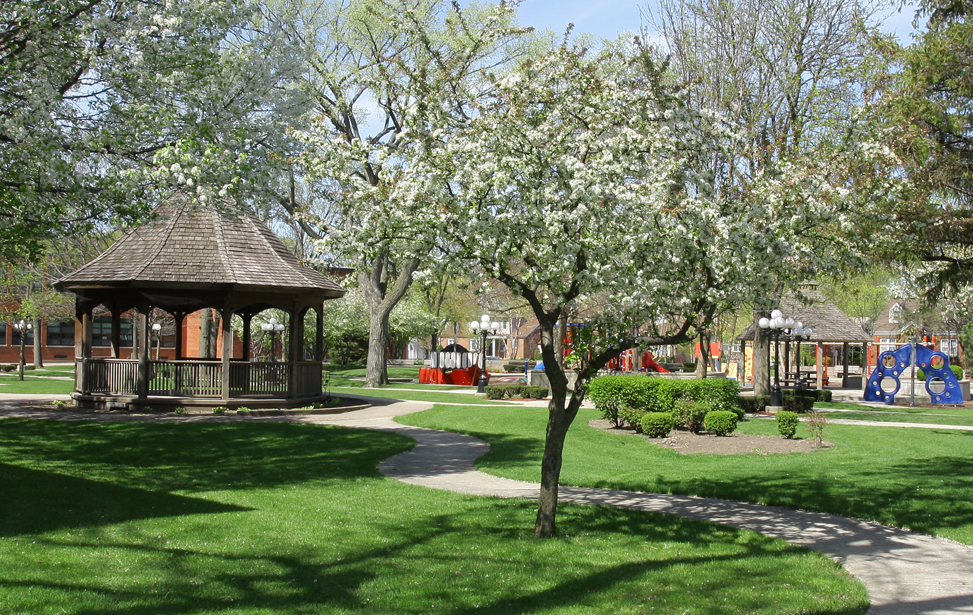
Established in 1914 during the colonial era, it was originally a garden for Lord Lugard, the British colonial administrator of Nigeria.
The park offers a variety of recreational activities for people of all ages. It features a zoo with a diverse range of animals, including lions, ostriches, cheetahs, and crocodiles.
There are also swimming pools, water slides, and other water attractions, making it a popular destination for families and friends.
In addition to its recreational facilities, Kofar Gamji Park is also known for its historical significance. The ancient Lord Lugard Bridge, which once connected different parts of the park, is a testament to the park’s rich history.
The park has undergone several renovations and rebrandings over the years. It was once known as Splash Park, but it has reverted to its original name, Kofar Gamji Park.
Despite these changes, the park remains a beloved destination for Kaduna residents and visitors alike.
Kofar Gamji Park is a great place to spend a day with family and friends. It offers a variety of activities for all ages, making it a perfect destination for a fun-filled day out.
Travel Tips for Exploring Kaduna
When visiting these fun places to visit in Kaduna, consider the following recommendations. :
- Wear comfortable walking shoes.
- Carry sufficient water and sunscreen.
- Respect local cultural practices.
- Take guided tours for better experiences.
- Bring a camera to capture memorable moments.
Best Time to Visit Kaduna
The best time to explore fun places to visit in Kaduna is during the dry season, typically between November and March.
During these months, weather conditions are more favourable for outdoor activities and sightseeing.
Accommodation Options
Kaduna offers various accommodation choices near these attractions. From budget-friendly hotels to more luxurious resorts, travellers can find suitable lodging options to complement their exploration of fun places to visit in Kaduna.
Conclusion
Kaduna offers travellers a diverse range of experiences across historical, cultural, and natural attractions.
Whether you’re interested in museums, mediaeval-style castles, cultural festivals, or wildlife adventures, these destinations promise memorable experiences.
Pack your bags, bring your sense of adventure, and prepare to explore the incredible fun places to visit in Kaduna. Each destination offers unique insights into the region’s rich heritage and natural beauty.
Check out more travel articles here.
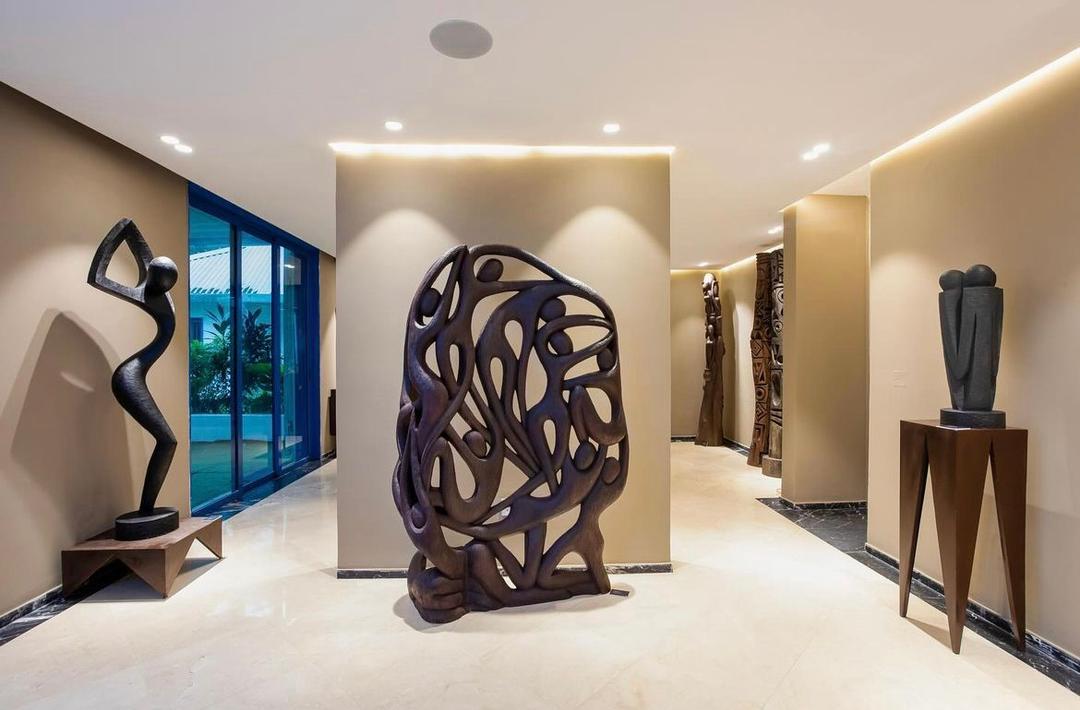
Lagos, a vibrant cultural hub, offers a rich art scene filled with inspiring galleries. Whether you’re a seasoned art lover or a curious traveller, exploring the best art galleries in Lagos promises a journey through contemporary African creativity and history.
1. Nike Art Gallery
Nike Art Gallery stands out as one of the best art galleries in Lagos. Located in Lekki, this gallery is a sprawling four-story building housing over 8,000 artworks.
Founded by Nike Davies-Okundaye, it celebrates Nigerian heritage through traditional and modern art. You’ll find sculptures, paintings, textiles, and beadwork, showcasing talents from across Nigeria.
It’s not just an art gallery; it’s an immersive cultural experience where visitors can participate in workshops and meet artists.
2. Rele Gallery
Rele Gallery, situated in Ikoyi, is renowned for promoting contemporary African art on a global scale. As one of the best art galleries in Lagos, it features innovative exhibitions that challenge artistic boundaries.
Rele focuses on emerging and established artists, bridging the gap between local talent and international recognition. Their commitment to fostering new artists has made it a pivotal platform for modern African expression.
3. Terra Kulture
Terra Kulture, located in Victoria Island, is more than just an art gallery. It’s a cultural centre that hosts exhibitions, theatre performances, and art classes.
Known for promoting Nigerian culture, Terra Kulture regularly features works from leading and upcoming artists. Visitors can enjoy a variety of art forms, from paintings to sculptures.
Its dynamic atmosphere and diverse events make it one of the best art galleries in Lagos.
4. Omenka Gallery
Omenka Gallery in Ikoyi is a must-visit for art collectors. Founded by Oliver Enwonwu, the son of renowned artist Ben Enwonwu, the gallery focuses on contemporary and modern African art.
Its exhibitions often feature works from top Nigerian and international artists, contributing to its reputation as one of the best art galleries in Lagos. Omenka also engages in global art fairs, enhancing the presence of African art on the world stage.
5. Art Twenty One
Art Twenty One, located at the Eko Hotel in Victoria Island, offers a sleek, modern space dedicated to contemporary art.
The gallery showcases cutting-edge works from Nigerian and African artists, fostering a dialogue between local and global art scenes. Its exhibitions often push artistic boundaries, making it a favourite among art enthusiasts.
As one of the best art galleries in Lagos, Art Twenty One highlights the evolving landscape of African art through thoughtfully curated shows.
6. Kó Art Space
Kó Art Space is a dynamic creative hub that combines art, community, and education. The space hosts a variety of exhibitions, workshops, and events, offering a platform for emerging artists and cultural practitioners.
Kó Art Space is committed to fostering a vibrant and inclusive art scene in Lagos. The gallery’s innovative programming and commitment to community engagement make it a unique and exciting destination for art lovers.
By visiting these five art galleries, you can experience the vibrant and diverse art scene in Lagos. Whether you’re interested in traditional African art or contemporary works, you’re sure to find something to inspire and amaze you.
For more articles like this, click here.
Latest


4 Ways You Can Slay This Christmas Season
The Christmas season bursts with joy, love, and celebration, making it the perfect time to slay your unique style and...


5 Budget Ideas For A Date Night
In the dynamics of Lagos dating, finding budget ideas for date night has transformed into an extreme social challenge rather...


9 Things Men Do Only For The Woman They Respect
When men deeply respect a woman, their actions speak louder than words. Respect in a relationship is reflected in thoughtful...


4 Tips For A Stress-Free Cooking Experience This Christmas
The Christmas season is a time for joy, family, and delicious meals. However, cooking can often feel overwhelming, especially with...
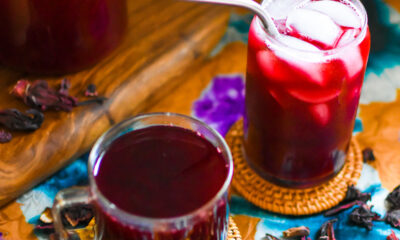

3 Best Nigerian Drink Recipes To Share Love This Season
Are you planning to celebrate the holiday season by inviting loved ones to share delicious moments? You can delight them...


5 Ways To Stay Healthy This Christmas Season
The Christmas season is full of joy, food, and celebrations, but it can also be a time when health routines...


Trying These Would Make Your Synthetic Or Human Hair Wigs Luscious & Beautiful
Wigs, whether synthetic or made from human hair, are versatile tools for styling, enhancing your look, or providing a confidence...
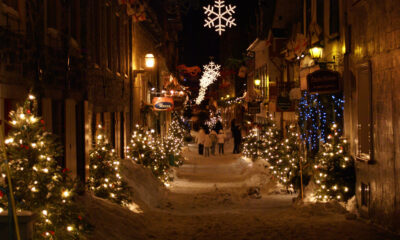

5 Cities With The Best Christmas Decorations
Christmas decorations transform cities worldwide into mesmerising wonderlands of light and art. These festive displays, filled with dazzling lights, intricate...
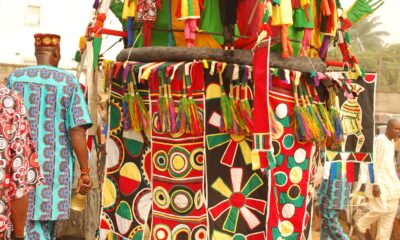

Ijele Masquerade: The “King Of Masquerades” In Igbo Land
The Ijele Masquerade, often referred to as the “King of Masquerades,” holds a revered position in Igbo culture. It is...


OdumoduBlvck Recounts How Don Jazzy Gifted Him $10,000
OdumoduBlvck recently praised Mavin Records founder Don Jazzy in an interview with Beats FM. The rapper discussed his latest project,...
-Ad-




You Can Make Your Kunu Drink With This Simple Recipe

“A Ghetto Love Story” Rakes Over ₦22 Million At Box Office In Its Opening Weekend

“Family Gbese” Earns ₦28 Million In Box Office 2 Weeks After Its Release

Here’s The Best Recipe For Making Rice Fritters

5 Fashion Mistakes Men Make That Women Find Unattractive

Here Are The 5 Oldest Tribes In Nigeria

5 Things You Must Do To Make Sex Easy In Your Relationship

“Adire” Wins Best Cinematography At The 16th Best of Nollywood Awards

5 Cheapest States To Live In Nigeria

Court To Hear N5bn Copyright Infringement Suit Against Sinach
Trending
-

 MUSIC7 days ago
MUSIC7 days agoHere Are The Most Streamed Gospel Artists On Spotify Africa
-

 FAB FRESH6 days ago
FAB FRESH6 days agoBurna Boy Set To Release New Single, “Bundle” This December
-

 NEWS7 days ago
NEWS7 days agoNNPC Slashes Petrol Prices Nationwide
-

 LIFESTYLE7 days ago
LIFESTYLE7 days ago7 Facts About Samuel Nwajagu, Mister International 2024
-

 ENTERTAINMENT7 days ago
ENTERTAINMENT7 days agoFunke Akindele’s “Everybody Loves Jenifa” Breaks Box-Office Records With ₦206 Million In Its Opening Weekend
-

 FAB FRESH7 days ago
FAB FRESH7 days agoTimaya Releases Music Video For New Single, “Mase”
-

 ENTERTAINMENT7 days ago
ENTERTAINMENT7 days agoI Was Nigeria’s Sweetheart Until I Got Divorced – Tiwa Savage
-

 BEAUTY7 days ago
BEAUTY7 days agoNigerian Model, Samuel Nwajagu Becomes First African To Win Mister International Title


